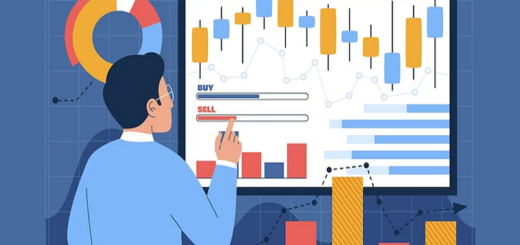Exploring the Best Financial Investment Apps and Stock Trading Apps
In the modern world, investing has become increasingly accessible, thanks to the rise of financial investment and stock trading apps. These mobile applications empower users to manage their finances, invest in various assets, and trade stocks conveniently from their smartphones. This blog will guide you through the essentials of investment apps, their importance, and some of the best options available for beginners.
What are Investment Apps?
Investment apps are digital platforms that facilitate the buying, selling, and management of various financial assets, including stocks, bonds, mutual funds, and more. These applications come with a variety of features designed to simplify the investment process:
- Portfolio management: Users can track their investments and monitor performance over time.
- Trading capabilities: Easily buy and sell stocks and other assets with just a few taps.
- Educational resources: Many apps provide tutorials and articles to help users understand investing basics and market trends.
- Automated investing: Some platforms use algorithms to create and manage personalized investment portfolios based on individual risk tolerance and goals.
Why are Investment Apps Important?
Investment apps have transformed the investing landscape for several reasons:
- Accessibility: They make it possible for a large number of people, regardless of experience or background in finance, to engage in investing.
- Convenience: Users can manage their investments on-the-go, making it easy to trade and track performance anytime and anywhere.
- Cost effectiveness: Many apps offer low or no fees, allowing users to invest even small amounts without incurring significant costs.
- Personalized experience: Some apps provide tailored recommendations and automated services that cater to individual investment preferences and objectives.
Best Investment Apps for Beginners
If you’re just starting your investment journey, here are some types of apps that can help you get started:
1. Mutual Fund Investment Apps
These apps focus on mutual funds, which are ideal for beginners due to their diversification and professional management. Look for features such as:
- Simple account setup: A straightforward process to create an account and start investing.
- Variety of options: Access to a wide range of mutual funds to choose from.
- No commission fees: Many apps do not charge commission fees for mutual fund transactions.
- User friendly interface: An intuitive design that makes navigation easy for new investors.
2. Stock Trading Apps
For those interested in actively trading stocks, stock trading apps offer the following benefits:
- Easy navigation: A clean, intuitive interface that simplifies the trading process.
- Educational tools: Resources and tutorials that help beginners understand stock trading.
- Low or no brokerage fees: Many platforms offer commission-free trades, making it cost-effective to buy and sell stocks.
- Diverse investment options: Access to a wide range of stocks and securities.
3. Robo-Advisor Apps
Robo-advisors are automated platforms that create and manage investment portfolios based on user preferences. These apps are excellent for beginners because they:
- Automate investing: Take the guesswork out of investment decisions.
- Diversify investments: Spread risk across various assets.
- Automatic rebalancing: Adjust your portfolio as needed to maintain your desired asset allocation.
- Low fees: Generally charge lower management fees compared to traditional financial advisors.
Best Stock Trading Apps
If you’re looking for the best stock market trading app, consider these features when choosing a stock trading app:
1. Advanced Charting Tools
Choose apps that provide sophisticated charting features, real-time data, and analytical tools to help you make informed trading decisions.
2. Variety of Trading Options
Look for platforms that allow you to trade different types of securities, including stocks, options, and ETFs (exchange-traded funds).
3. Margin Trading Capabilities
Some apps offer margin trading, which can amplify potential gains but also increases risk. This feature is typically suited for more experienced traders.
4. Customizable User Experience
Select apps that allow you to personalize your trading environment, such as setting up watchlists, creating alerts, and accessing market news.
Best Financial Investment Apps
For a holistic approach to managing your finances, consider these types of financial investment apps:
1. Budgeting and Expense Tracking Apps
These apps help you monitor your income and expenses, enabling you to create and stick to a budget effectively.
2. Goal-Based Savings Apps
Some apps assist you in saving for specific financial goals, such as a vacation or retirement, and may offer automated investing features.
3. Credit Monitoring Apps
These tools help you keep an eye on your credit score and report, providing insights and tips for improving your credit health.
4. Tax Planning Apps
Financial investment app include tax planning tools, helping you maximize your deductions and streamline the filing process.
Conclusion
Investment and trading apps have revolutionized how individuals manage their finances and invest in the stock market. By providing convenience, accessibility, and personalized options, these apps empower users to take control of their financial futures. Whether you’re a novice or an experienced investor, there’s an app that can help you achieve your financial goals.



